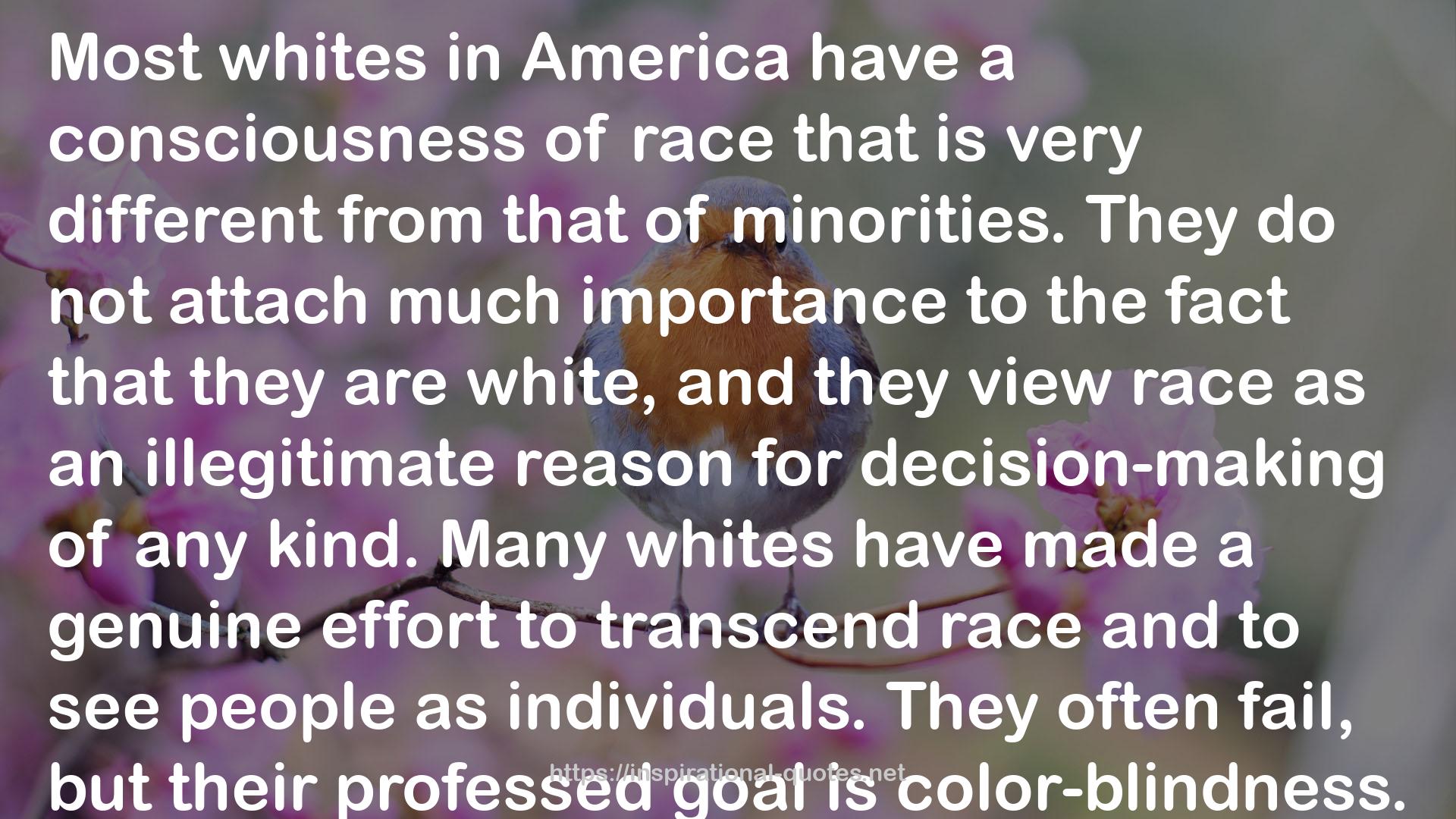" Most whites in America have a consciousness of race that is very different from that of minorities. They do not attach much importance to the fact that they are white, and they view race as an illegitimate reason for decision-making of any kind. Many whites have made a genuine effort to transcend race and to see people as individuals. They often fail, but their professed goal is color-blindness. Some whites have gone well beyond color-blindness and see their race as uniquely guilty and without moral standing. Neither the goal of color-blindness nor a negative view of their own race has any parallel in the thinking of non-whites.
Most whites also believe that racial equality, integration, and “diversity” flow naturally from the republican, anti-monarchical principles of the American Revolution. They may know that Thomas Jefferson owned slaves but they believe that the man who wrote “all men are created equal” had a vision of the egalitarian, heterogeneous society in which we now live. They are wrong. Earlier generations of white Americans had a strong racial consciousness. Current assumptions about race are a dramatic reversal of the views not only of the Founding Fathers but of the great majority of Americans up until the 1950s and 1960s. Change on this scale is rare in any society, and the past views of whites are worth investigating for the perspective they provide on current views.
It is possible to summarize the racial views that prevailed in this country until a few decades ago as follows: White Americans believed race was a fundamental aspect of individual and group identity. They believed people of different races differed in temperament, ability, and the kind of societies they built. They wanted America to be peopled by Europeans, and thought only people of European stock could maintain the civilization they valued. They therefore considered immigration of non-whites a threat to whites and to their civilization. It was common to regard the presence of non-whites as a burden, and to argue that if they could not be removed from the country they should be separated from whites socially and politically. Whites were strongly opposed to miscegenation, which they called “amalgamation.”
Many injustices were committed in defense of these views, and many of the things prominent Americans of the past said ring harshly on contemporary ears. And yet the sentiment behind them—a sense of racial solidarity—is not very different from the sentiments we find among many non-whites today. "
― Jared Taylor , White Identity: Racial Consciousness in the 21st Century
